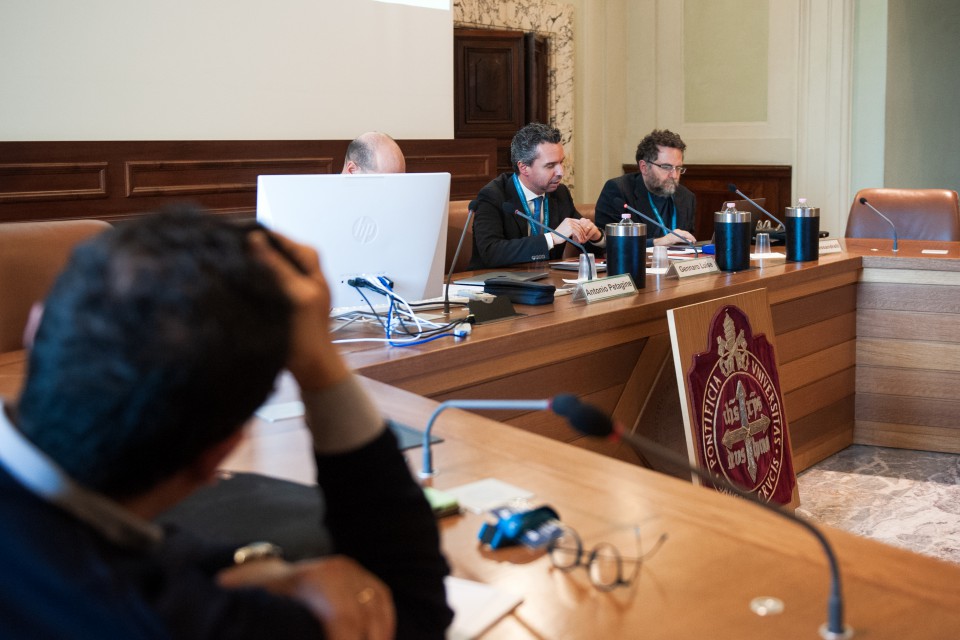In linea con gli obiettivi del Piano strategico 2024-2029 dell'Università, è stata annunciata la creazione, da parte del Rettorato, del nuovo Laboratorio di Ricerca Santa Croce.
A questo proposito, pubblichiamo una breve intervista al Vicerettore, rev. prof. Giovanni Zaccaria, da cui dipende organicamente il Laboratorio.
Come nasce il Laboratorio di Ricerca Santa Croce?
Il Laboratorio è un nuovo passo del processo iniziato l’anno accademico 2021/22, orientato all’impulso della ricerca e concretizzato nei due “call for projects”. Questo processo è stato molto apprezzato nella valutazione esterna realizzata dall’AVEPRO e posteriormente è passato a far parte del piano strategico, come una delle priorità per i prossimi anni. Ci tengo a dire che tutto questo è stato possibile grazie al supporto di FORSA, la fondazione messicana che da anni aiuta l’Università con le borse di studio, e adesso anche con il finanziamento dei gruppi di ricerca. Vorrei esprimere il nostro sentito ringraziamento.
Qual è il proposito del Laboratorio a breve, medio e lungo termine?
A breve termine, il Laboratorio si occuperà di dare supporto e coordinare i sette gruppi di ricerca creati con occasione dei due “call for projects”. In futuro organizzerà anche le eventuali “call” di questo tipo. A medio termine, potrebbe promuovere, d’accordo con le Facoltà, corsi di metodologia della ricerca, aperti a tutti i professori e ricercatori dell’Università, dottorandi inclusi. A lungo termine ci auguriamo che il suo supporto possa essere offerto anche ad altri centri di ricerca presenti nell’Università.
Come viene organizzato il Laboratorio dal punto di vista strutturale?
Il Laboratorio avrà un coordinatore scientifico - il professore Ossandón - che sarà in contatto con i ricercatori responsabili dei gruppi di ricerca e lavorerà in stretto contatto con il Rettorato e le Facoltà. La squadra la completano due professioniste, Alina Balaj per la comunicazione e Milagros Lanusse per gli aspetti economici e amministrativi.
Come interagisce questa nuova struttura con gli altri Centri di Ricerca dell’Università e con le Facoltà e l’ISSRA?
Il lavoro di ricerca dei singoli professori, dei dipartimenti, dei centri, delle Facoltà e dell’ISSRA continuerà andando avanti con autonomia e con il sostegno del Rettorato e i rispettivi comitati direttivi. Il Laboratorio cercherà di aiutare in modo particolare i gruppi che nascono dei “call for projects”. Vedremo con il tempo e con l’esperienza le possibili sinergie che sicuramente nasceranno grazie alla collaborazione di tutti.




